OPINION: Green New Deal: Ocasio-Cortez led Democrats in a valiant charge of environmentalism — straight off a cliff
Democrats had found the Golden Ticket — or rather, the Green Ticket.
They had in their holster an idea that was so grand, so focused and inspiring that it enjoyed the support of more than 80 percent of Americans from both parties, polls show — an increasingly rare thing in our hyperpartisan political climate.
And then, as we have too often seen from the Democrats, they squandered that vote-getting, aisle-reaching, civilization-saving idea. They put it on a silver platter, and before they could hand it to 2020 voters, they loaded it onto a carbon-spewing rocket and fired it straight into the laps of Fox News pundits, who gleefully spin it as a half-baked socialist fever dream.
The Green New Deal is supposed to be a revolutionary program, much like its namesake, President Franklin Delano Roosevelt’s New Deal, which employed millions of Americans for public works projects and helped lift the country out of the Great Depression. The Green New Deal would have been a massive overhaul of the United States’ energy infrastructure, mobilizing millions to modernize our country’s energy industries.
And when Rep. Alexandria Ocasio-Cortez, the Green New Deal’s sponsor and ideological mother, finally unveiled her proposal in Congress, it was a stunningly incoherent and meandering non-binding resolution.
What should have been a package of legislation so dense it would need to be brought onto the House floor with a forklift was reduced to a paltry 14-page document that should have begun with “Dear Santa.” DePaul political science professor Wayne Steger characterized the proposal as it was introduced to Congress as “an aspirational document that is largely just a series of goals.”
One of the goals listed in the proposal is “to promote justice and equity by stopping current, preventing future, and repairing historic oppression of indigenous peoples, communities of color, migrant communities, deindustrialized communities, depopulated rural communities, the poor, low-income workers, women, the elderly, the unhoused, people with disabilities, and youth.”
A worthy goal indeed, but maybe Ocasio-Cortez should have stuck to the issues at hand: climate change, unemployment and infrastructure investment and save the cultural issues for another battle.
And now, after conservatives have had time to organize their opposition to the plan, it’s starting to lose the broad appeal that it enjoyed in its infancy. The organized Republican opposition makes it unlikely any past bipartisan support can be replicated in future votes, if any actual legislation is ever introduced.
Steger said that all young ideas enjoy higher popularity when they are introduced, but once opponents of it get organized and craft an opposition strategy, they decline in popularity. But because of the Green New Deal’s lackluster and aimless rollout, it will be more difficult to recover from the attacks.
“It was inevitable that this thing was going to deflate in its popularity,” Steger said. “I think the difficulty is that it’s deflated and there is still no concrete proposal.”
Republican Senate Majority Leader Mitch McConnell forced a vote on the proposal, which resulted in a humiliating failure for Democrats. It needed 60 votes to clear a procedural hurdle, but got zero. Senate Democrats all voted “present,” essentially choosing not to vote “yes” or “no,” with the exception of Sens. Doug Jones, Joe Manchin and Krysten Sinema, who voted “no” with Republicans.
McConnell forced the vote so quickly just so that Republicans could bag headlines that they defeated the confident and tough-talking democratic socialist’s first big policy proposal. In other words, by jumping the gun on the resolution, Ocasio-Cortez walked right into McConnell’s trap.
Malik Siddiqui, secretary of the DePaul College Republicans, said that he thinks the Green New Deal would be catastrophic for the economy.
“I hate [the Green New Deal]. The entire plan is ridiculous,” he said. “It’s going to increase spending, and it’s not a serious problem at the moment. […] I think it’s a waste of taxpayer money. We have more pressing issues facing young people, like stagnating wages and the opioid crisis.”
The cost estimate cited by the Green New Deal’s opponents comes from the
conservative think-tank American Action Forum, which put the cost at somewhere between $51 and $93 trillion — in other words, the cost would be somewhere in the neighborhood of the GDP of all the world’s countries combined.
Steger called the estimate “absolutely absurd” because there is no way to possibly estimate the cost of something that is nowhere close to having any specific, focused goals. But that hasn’t stopped McConnell, President Donald Trump and Fox News hosts from repeating the figure.
If Ocasio-Cortez had waited to submit a full package of legislation, they could have gotten a more accurate cost estimate from the non-partisan Congressional Budget Office rather than a partisan think-tank, which would be much harder for Republicans to attack.
If the Green New Deal has any chance of becoming a reality now, its sponsors
have to take a step back and let the news cycle move on while they craft a piece of actual legislation. They need to get some Republicans on board like Chuck Grassley, the pro-wind energy Iowa senator, to help counter the conservative attacks.
The Green New Deal remains a popular idea, particularly among young people. But what we need now is an actual bill — something Democrats can take to communities and start selling them on how exactly the Green New Deal can positively impact them and leave a better world for their children.
The Green New Deal is an opportunity for Democrats to reinvent themselves as the party of bold new ideas and meaningful change. If they screw up the legislation rollout like they did with the resolution, Americans might not believe them the next time they say they have discovered the next world-changing idea.



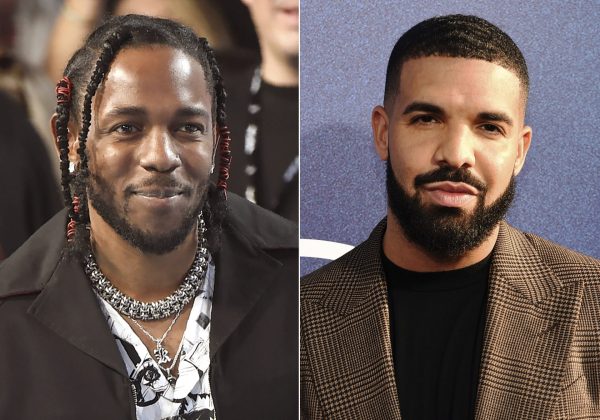
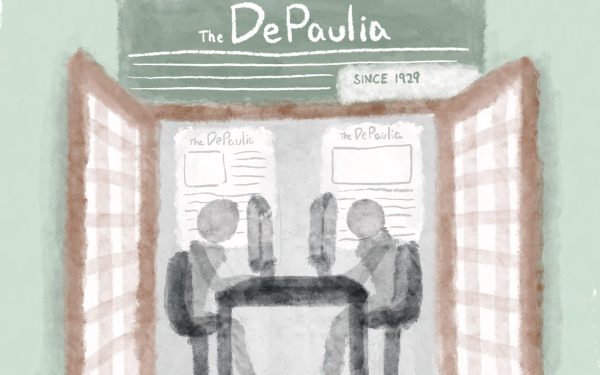
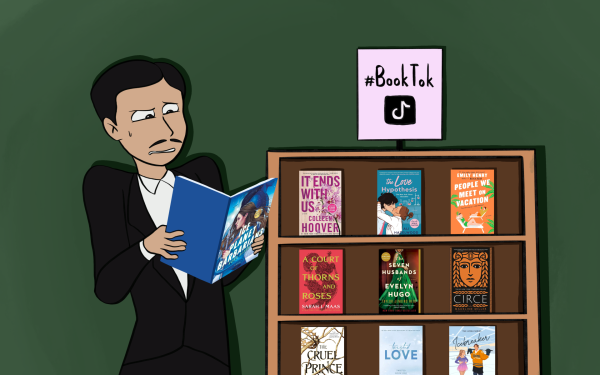



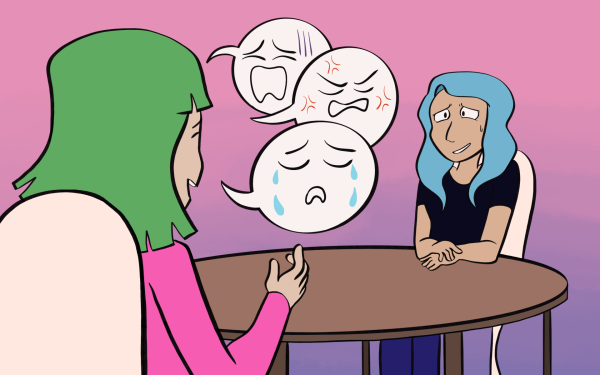
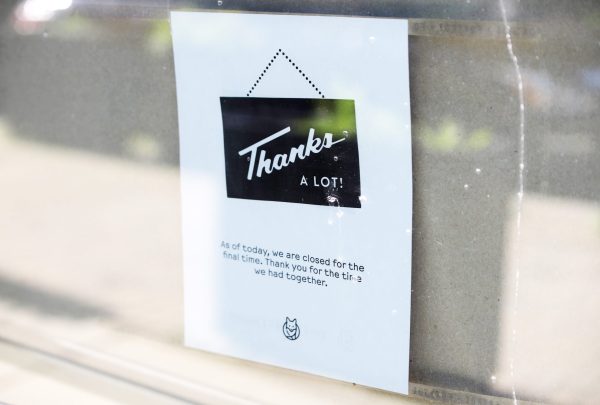
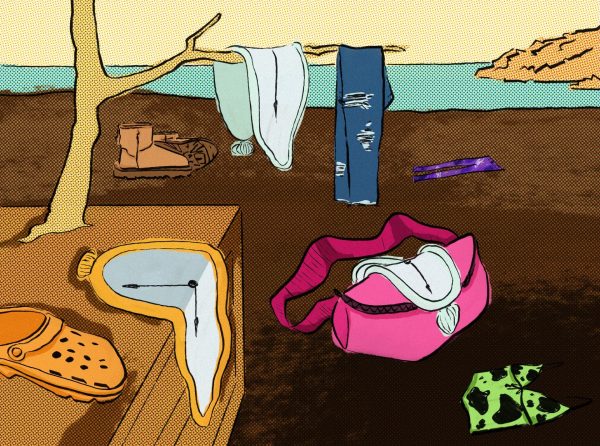

Cary Moy, Driehaus '93 • Apr 8, 2019 at 2:46 pm
Further proof that The DePaulia is just another worthless neoliberal rag. Rep. Alexandria Ocasio-Cortez didn’t kill the Green New Deal; the establishment Democrats did! They hijacked a Green Party platform for the sole purpose of murdering it. References to the DePaul College Republicans and American Action Forum yet another reminder that The Duopoly (both GOP & Democrats) is giving our nation a death wish.
Farquahr • Apr 8, 2019 at 9:56 am
For the first time in human history – every nation on the planet agreed to build a cleaner future due to a ccommon threat
Thats over 7 billion people smarter than your average goober